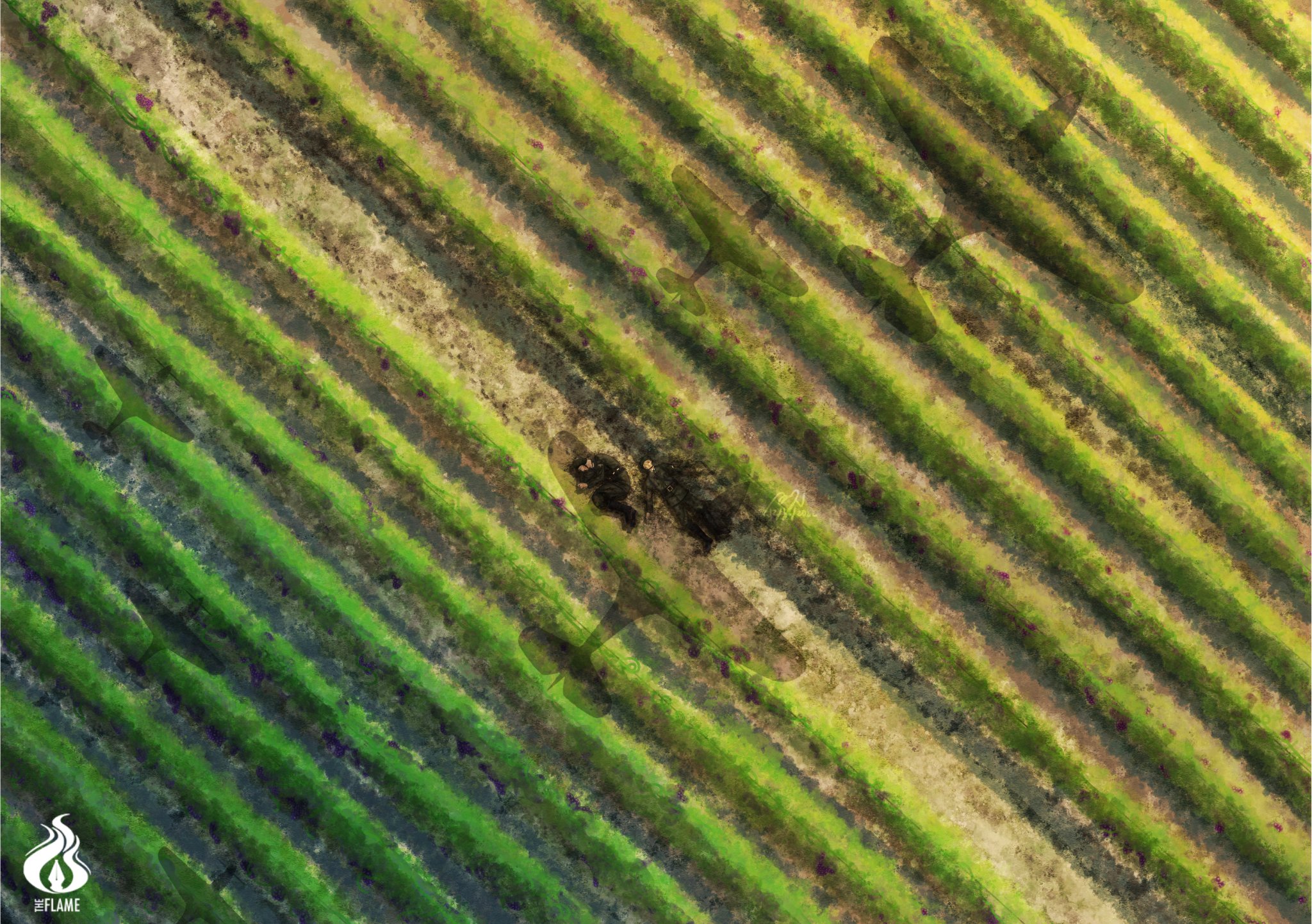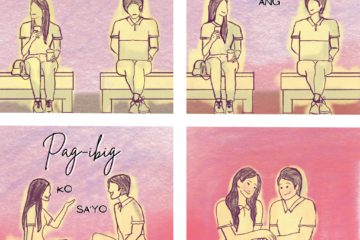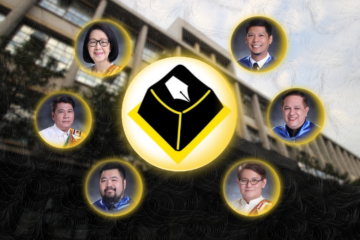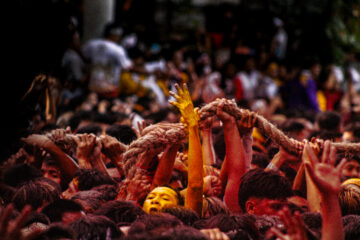by FRANZ ZOE STOELZL T. BAROÑA

Editor’s Note: This piece is one of the works in a nine-part series in line with the Dapitan 2023 theme Panopticon. All works are written by The Flame‘s Literary staffers.
RATS SCUFFLED from the crevices that graced the surface of the earth, the ground trembled beneath the grinding steel tracks of Soviet tanks, and bullets tattered in all four cardinal directions—wheezing past the German’s crippled ears. Aircrafts and artillery continued to govern what was once the proud skies and soil of Berlin.
The Germans were denied of their own will—so much that Fritz had to carry his son Finn into an abandoned house, begging him to silence his voice from the cries he could not restrain for God’s sake.
When Finn had settled, he was lost in his thoughts. His irides pierced through the non-existent ceiling and further into the vague, gray clouds where wisps of flame motes and stone grits rapidly surged to the west.
“Pa,” Finn started with a low tone, struggling to lay himself by the wall under a shattered window.
Though driven to redeem himself, Finn, whose fingers already lost every sensation, eventually let go of the rifle he had been clinging on. Despite the bitter pain, it seemed as if he could not feel his blood streaming from the wound on his chest. Fritz proceeded to pressure it with a bandage, ignoring his own injuries.
“Yes?” murmured Fritz, his voice yearning for a sense of solicitude.
He peeked over the ledge of the window, witnessing an infantry of Soviets marching to the Brandenburg Gate whose pillars were partially demolished during the bloodshed.
“Mama’s vineyard,” Finn reminisced, “and the wineries.”
It took Fritz a little over a few ticks of the clock before noticing the cadavers of their colleagues piled up across the lounge—like fruits on a basket, he thought. His sweat drenched from the scent and sight of the corpses as the rays of the sun refused to leave the plaza.
Fritz unbuttoned his son’s rugged coat. “Why, Finn?”
Thick smog had begun to conceal the city; across the Paris Square plaza were more Soviets determined to suppress the German troops who were fleeing the battlefield. Regardless of the turmoil ushering throughout the region, Fritz and Finn found themselves confined within their subtle voices.
“Were the grapes terrified of us?” Finn brought out a rusted sickle from his pocket. “Of our sickles and shears, Pa?”
Fritz reached out for the tool, grabbing it by its handles. Gifted to him by his father so he could use it to cut off grapes at his mother’s vineyard in Champagne, France, Finn kept the sickle as a memorabilia during the war.
“When we threshed and crushed—”
“Let’s not speak of such things,” Fritz interrupted, pressing on his son’s shoulder. Tears coursed along his cheeks and his hands tightened from the cascade of thoughts he had collected upon witnessing the tool. Four days had passed since the Battle of Berlin took place; four days they abided by a discipline that contradicted their once innocent hearts.
“T…t-hose fruits.” Finn continued amidst the stutters, forcing a cough from the depths of his throat.
A barrage of gunshots recurred at the plaza. Each passing of time, Fritz could hear the approaching footsteps of their adversaries and the deteriorating presence of their companions. Finn’s voice remained composed and he found himself gazing at his father’s quivering lips. Fritz realized, after all, what his son was trying to convey.
“They once thrived, didn’t they, Pa?”
Finn retrieved his sickle and placed it on his chest. The atrocious cries of war is now but a wistful harmony of swaying vines and dancing monsoons for the two.
“They did, Finn,” Fritz declared before hearing a loud thump from one of the doors, “but they prospered even more.”
Beyond everything, they were once vignerons primed to harvest grapes at the wake of the reaping hour. F



